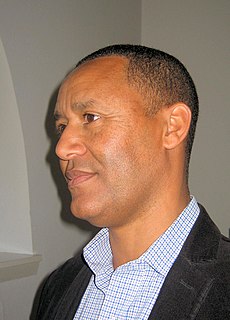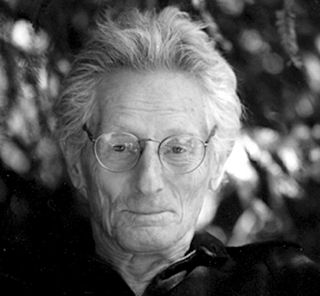A Quote by Jeff Hawkins
We are our brains. My brain is talking to your brain; our bodies are hanging along for the ride.
Related Quotes
Most of our brain cells are glial cells, once thought to be mere support cells, but now understood as having a critical role in brain function. Glial cells in the human brain are markedly different from glial cells in other brains, suggesting that they may be important in the evolution of brain function.
Psychologism holds that logical assertions are percolations of brains. Thus logic is a set of rules for how healthy brains operate. Aside from the infinite regress of a brain determining whether a brain is healthy, we have the infinite regress of the idea 'All concepts are brain percolations' being itself a brain percolation, on its own terms.
Essentially, there's a universe inside your brain. The number of connections possible inside your brain is limitless. And as people have learned to have more managerial and direct creative access to their brains, they have also developed matrices or networks of people that communicate electronically. There are direct brain/computer link-ups. You can just jack yourself in and pilot your brain around in cyberspace-electronic space.
Each of us plays four roles in relation to the brain. We lead, we inspire, we invent, and we use it. Most people do not actively use their brains. They passively let their feelings and thoughts control their lives. They don't invent new ways to use their brains, either, settling instead for the same routine and repetitive thoughts every day. But if you master all four roles, you create your super brain. When you are the active observer of your feelings and thoughts, you become the user of your brain. Your super brain then serves you, not vice versa.
The pace at which science has progressed has been too fast for human behaviour to adapt to it. As I said we are still apes. A part of our brain is still a paleo-brain and many of the reactions come from our fight or flight instinct. As long as this part of the brain can take over control the rational part of the brain (we will face these problems).
At age three, if you have a still-growing brain, it's a human behavior. In chimps, by age three, the brain is formed over 90 percent. That's why they can cope with their environment very easily after birth - faster than us, anyway. But in humans, we continue to grow our brains. That's why we need care from our parents.
Presumably there are energies, to which each human is sensitive, that we cannot yet detect by means of our instruments. Built into our brains and our bodies are very sensitive tuneable receivers for energies that we do not yet know about in our science but that each one of us can detect under the proper circumstances and the proper state of mind. We can tune our nervous systems and bodies to receive these energies. We can also tune our brains and bodies to transmit these energies.
Everyone uses the brain at every moment, but we use it unconsciously. We let it run in the background without realizing the power we have to reshape the brain. When you begin to exercise your power, the everyday brain, which we call the baseline brain, starts to move in the direction of super brain.
I would not hesitate to say I was addicted to the Internet in the first two years. It can be addictive, and things not taken in moderation have negative effects. But the alarmism around 'Facebook is changing our brains' strikes me as a kind of historical trick. Because we now know from brain science that everything changes our brains.
It's gross. We use real brains - I think they're lamb or cow or something. Intestines smell. Brains don't really smell, but what's amazing about the brain is that it's almost like scrambled eggs or soft tofu, almost like a gel. The brain controls so much of what we do, but you could put your finger right through it.

































